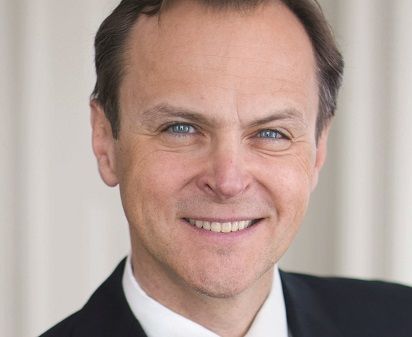Share Content
Article Link Copied
It’s Time for a Fundamental Change

To achieve a high level of educational returns and provide fair opportunities for every child, there needs to be a fundamental change in the thinking of policymakers, business leaders and the broader public. This is where the newly launched Ready! campaign comes in.
Ready! addresses the issues of early childhood education and care from a variety of perspectives. Certain conditions need to be in place for all children to be able to fulfill their potential, and creating these conditions is the responsibility of society as a whole. Accordingly, the Ready! campaign is supported by a diverse set of people from business, politics and society at large: Milan Prenosil, Chairman of the Board of Management at Confiserie Sprüngli; Christoph Eymann, member of the Swiss National Council from the canton of Basel-Stadt; Heinz Altorfer, member of the Swiss National Commission for UNESCO; and Lavinia Jacobs, chairwoman of the Jacobs Foundation’s Board of Trustees.
In an interview with the Newsletter editor, Milan Prenosil discusses his personal motivations and goals for the Ready! campaign.
Why did you agree to support the Ready! campaign?
First of all, I believe that it is important for children to have a fair chance to live the kind of life they choose for themselves. And as a father, this topic affects me at a personal level. I have always attached great importance to interacting with my own children. Early childhood education is an issue I care deeply about, although technical terms like human capital and return on investment mean little to me. My focus is on human beings and fair opportunities for all. We are all responsible for ensuring that opportunities are more equitably distributed.
Which one of your roles influenced your decision more – your role as a father, or your position as Chairman of the Board of Management at Confiserie Sprüngli?
The two are closely linked. As a father, I have always found it very important to spend time with my children and play an active role in their development. Today there is a widespread misconception that early childhood education means teaching toddlers a foreign language or introducing three-year-olds to reading and arithmetic. But that’s not what it’s about. Instead, it’s about engaging with children through play and encouraging them to use their imaginations and explore the world around them. With my own children, I used to spend hours telling them stories, until we were so exhausted that we would almost fall asleep.
Here at Confiserie Sprüngli, I care deeply about training at every level, whether for apprentices, middle management or executives.
As the Ready! supporter representing the business community, what challenges do you anticipate?
The business world has yet to fully recognize the importance of early childhood, since the economic benefits of investing in this period are not immediately obvious. Business leaders are only concerned with facts and figures, which are not available for Switzerland in this context. It is therefore enormously important to generate scientific evidence demonstrating that investments in early childhood pay off – not from studies in Latin America or Africa, but from research in our own cultural region. Only then will we be able to compare the numbers with the situation here in Switzerland. Many business leaders wonder why they should invest in such a long-term project; the benefits of early childhood education don’t show up for 15 or 20 years – which makes it all very abstract. By that point, many of today’s decision makers will have retired. It’s a real challenge to wait so long for an investment to yield returns.
What are your goals supporting Ready!?
I see myself as someone who can build bridges to the worlds of business and politics, and I want to send clear messages that will increase enthusiasm for the topic of early childhood education. Our goal is not to hand over responsibility to the government, but to enable parents to spend more time with their children. It’s about intelligent interactions – the quality of the time parents spend, and not necessarily its quantity. There are costs, of course – for companies, too. At Confiserie Sprüngli, we are enabling many women – and men – to work part time so that they can also be with their children. When our company employs both parents, we try to coordinate their work schedules so that they can care for their children themselves as much as possible.
What aspect of the campaign are you particularly looking forward to?
I’m looking forward to establishing many new contacts, engaging in fruitful discussions and meeting people who are already excited about this issue as well as others who know little about it. We in the business community can’t do it alone, however; we need to work with policymakers to achieve our goal of fair opportunities for all.